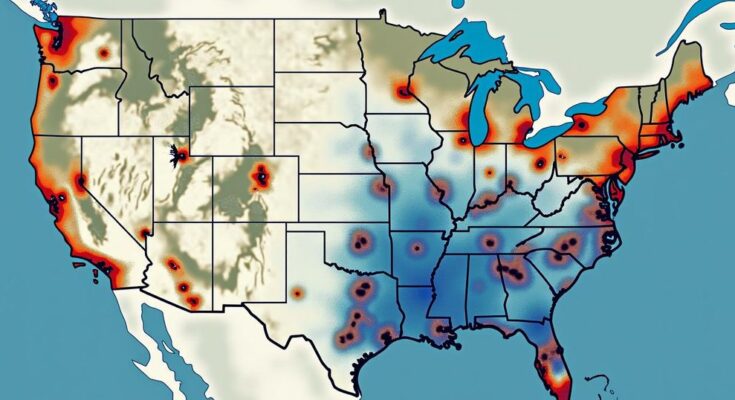Hurricane Helene has led to widespread devastation across the Southeast, with ongoing concerns for access to clean water and health risks posed by contaminated floodwaters. Over 180 storm-related deaths have been confirmed, and thousands remain without electricity or potable water, prompting urgent assistance from federal and state officials.
A week after Hurricane Helene impacted Florida and the Southeast, health officials express serious concerns regarding the lack of clean water and the potential for mold-related health issues in the affected areas. With over 180 storm-related fatalities confirmed and countless individuals still without electricity or access to potable water, the situation remains critical. Residents in Western North Carolina, for instance, face approximately 160 boil water advisories, and city officials in Asheville caution that residents may have to wait weeks for restoration of clean water services. In addition to the immediate dangers posed by contaminated water, including severe illness, residents are also at risk due to the pervasive threats posed by standing floodwaters. Disaster epidemiologists highlight that sewage-contaminated floodwater can result in infectious diseases, particularly threatening vulnerable populations with pre-existing health conditions. Symptoms of infection from waterborne pathogens can manifest as gastrointestinal distress, nausea, and fever, raising the alarm for health professionals. Hurricane Helene, which made landfall as a Category 4 storm, unleashed destructive torrents across multiple states, including Florida, North Carolina, Georgia, and Virginia. Federal assistance has begun to flow into the devastated regions, with both President Biden and Vice President Harris visiting affected communities, underscoring the need for long-term recovery support as rebuilding efforts are expected to last for months. As flood recovery continues, the interplay of extreme weather and climate change has thrown a spotlight on the urgent necessity for effective disaster preparedness and response strategies. Health officials remain vigilant about the health impacts linked to contaminated water and mold exposure, urging swift action to restore safe living conditions.
In recent years, the Southeastern United States has witnessed an alarming increase in the frequency and intensity of hurricanes, with climate change being a significant factor in these patterns. Hurricane Helene highlights the catastrophic aftermath of such storms, where flooding and damage lead to dire health risks. Clean water access becomes a critical issue following such natural disasters, as infrastructure suffers from damage, leaving communities vulnerable to waterborne diseases. With many individuals lacking basic amenities, health officials are tasked with addressing these pressing concerns while aiding in the long-term recovery efforts.
In summary, Hurricane Helene has left a substantial mark on the Southeastern United States, with urgent health warnings about contaminated water dominating the landscape of recovery efforts. With thousands still without safe drinking water and health risks from floodwaters looming, significant federal assistance has been initiated. The need for comprehensive support to rehabilitate affected regions remains pivotal as officials strive to ensure a swift and effective recovery, emphasizing the crucial link between public health and disaster response.
Original Source: www.axios.com




